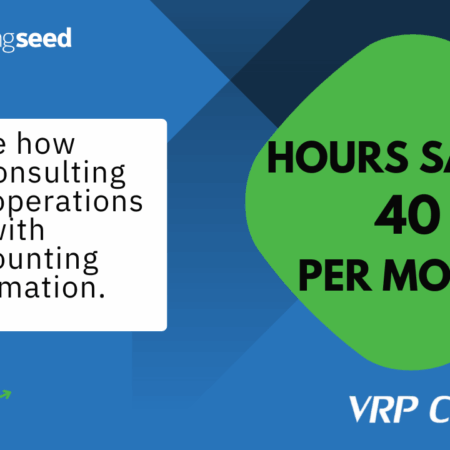
Law firms face unique challenges when it comes to accounting. Trust (IOLTA) accounts must stay separate from operating funds, every transaction must be traceable, and even small errors can trigger disciplinary action. Many general accounting tools aren’t built for that level of oversight, leaving firms to patch together systems that don’t fully protect client funds.
Billing adds another layer of complexity. Between billable hours, flat fees, retainers, contingency arrangements, and third-party expenses, it’s easy for mistakes or delays to creep in. Manual processes or disconnected systems often lead to late invoices, write-offs, and billing disputes.
And when case management, time tracking, billing, and accounting all live in separate solutions, firms end up with double entry, data silos, and inconsistent reporting. It slows everything down and increases the risk of errors.
In this roundup, we’ll look at the most popular accounting solutions used by law firms—from general systems that can be adapted for legal work to purpose-built legal solutions—and show how firms like Ayo & Iken and Founders Legal have scaled using Accounting Seed, a Salesforce-native solution that connects directly with case management tools including Litify and Mitratech (if you’re on one of these tools, we recommend skipping down to the Accounting Seed section below!).
General accounting solutions
QuickBooks
QuickBooks is one of the most widely used accounting tools among small businesses and solo law firms. It covers core bookkeeping—like invoicing, bank reconciliation, and financial reporting—with a familiar interface and a large ecosystem of integrations, including payroll and time tracking.
Many law firms pair QuickBooks with legal case management software such as Clio Manage, MyCase, Rocket Matter, LeanLaw, CaseFox, or Actionstep. In these setups, QuickBooks serves as the GL, while the case management system handles timekeeping, billing, and trust activity. This approach gives small firms access to business accounting while layering on legal-specific functionality.
Best for: Solo attorneys or small firms that want an easy-to-use accounting foundation and plan to add legal-specific tools as needed.
Limitations: Not designed for law firms. Trust/IOLTA compliance requires add-ons or careful configuration. When paired with case management systems, QuickBooks integrations can be costly and require frequent maintenance. Firms using connected systems like Litify or Mitratech may prefer an accounting solution built directly into their case management software, which avoids the need for third-party connectors.
Xero
Xero is a cloud-based accounting solution similar to QuickBooks, known for its simple interface, affordability, and focus on small business usability. It handles essential accounting functions like invoicing, bank reconciliation, and financial reporting while offering strong integration options for payroll and expense tools.
Law firms may connect Xero with their case management software—including LEAP, Clio, and Actionstep—to sync billing, trust, and matter data while Xero manages the GL. This combination gives firms accurate accounting data without losing visibility into matter-based billing and client payments.
Best for: Small firms or solo practitioners that want cloud-based accounting with simple setup and clear reporting.
Limitations: Xero isn’t built specifically for law firms. Trust/IOLTA compliance requires add-ons or careful configuration. Reporting options are less flexible than ERP-level systems, and firms typically find Xero less robust than QuickBooks for high transaction volumes.
Zoho Books
Zoho Books is a cloud-based accounting system that allows firms to automate approvals, reminders, and transaction coding, while connecting directly with other Zoho tools for project management, document storage, and communications. The solution supports multi-user collaboration, multi-currency transactions, and detailed custom workflows at a relatively low cost.
For firms already using the Zoho ecosystem, the family of solutions helps keep client and accounting data organized without relying on multiple third-party apps. However, firms using separate case management software may find the integration options more limited.
Best for: Detail-oriented small firms, including those with international clients, that want to automate repetitive accounting tasks and already use Zoho products.
Limitations: Limited third-party integrations outside the Zoho suite. Lacks built-in trust/IOLTA accounting, so firms handling client trust funds will need additional tools or workarounds.
Note for Litify and Mitratech users: If you’re using either of these Salesforce-based case management solutions, Accounting Seed offers native accounting functionality within your existing system.
Law-firm specific solutions
Unlike general accounting tools, these solutions are built specifically for legal practices and include trust accounting, matter-based billing, and compliance features out of the box. Most combine practice management with accounting, eliminating the need for separate systems. These platforms share a common limitation: financial reports generally can’t be expanded or customized, offering no alternative reporting capabilities to analyze attorney or firm profitability. Configuration and automation options are also more constrained.
Clio Manage (with Clio Accounting)
Clio Manage is one of the most widely used legal practice management systems, known for its billing, time tracking, and built-in trust accounting features. It helps firms record time by matter, manage retainers, and handle client payments in compliance with bar rules. The solution also supports basic financial reporting and audit trails that simplify compliance and matter-based billing.
In 2024, Clio added Clio Accounting, bringing GL functionality directly into the system. Before that, most firms relied on QuickBooks or Xero to handle accounting while Clio managed billing and trust activity.
Best for: Solo and small firms that want an all-in-one practice management and accounting system, prefer staying inside the Clio environment, and don’t need complex reporting or advanced permissions.
Limitations: Clio Accounting is currently cash-basis only, offers just six core financial reports, and lacks granular user permissions. Firms with more complex accounting or accrual-based reporting needs may still prefer pairing Clio with a dedicated accounting solution like QuickBooks or Xero.
CosmoLex
CosmoLex is a cloud-based accounting and practice management solution built specifically for law firms. It includes billing, trust accounting with three-way reconciliation, and full GL accounting in one system. Because it’s designed for legal professionals, trust compliance features like separate ledgers, audit-ready records, and automatic reconciliation are built in rather than added later.
In addition to accounting, CosmoLex includes practice management tools such as calendaring, document management, and task tracking. This gives firms a single workspace to manage client work, billing, and accounting together. Firms that handle large volumes of client retainers or need strict trust oversight often appreciate how CosmoLex automates compliance tasks without relying on external tools like QuickBooks or Xero.
Best for: Small to mid-sized firms that want an all-in-one solution for billing, trust, and accounting, particularly those that need built-in compliance features.
Limitations: The interface can feel dated compared to newer cloud solutions, and integration options outside of legal-specific tools are limited. Larger firms that require advanced analytics or deep customization may find it less flexible than broader ERP-style systems.
MyCase
MyCase is a cloud-based legal practice management solution that combines case management, billing, time tracking, and client communication in one place. Its built-in trust accounting features support compliance by keeping client funds separate and maintaining clear audit trails. The system’s client portal allows firms to securely share documents, invoices, and payment links, which helps speed up collections and improve transparency with clients.
MyCase also offers online payment processing through integrated credit card and ACH options, reducing administrative work for billing staff. It also includes automation features such as recurring invoices and payment reminders.
Best for: Small to mid-sized firms that want an all-in-one case management, billing, and trust accounting solution with client communications and payment processing built in.
Limitations: Reporting and customization are limited compared to more advanced tools, and larger firms with complex accounting or analytics needs may outgrow the solution’s built-in capabilities.
LEAP
LEAP is a cloud-based legal practice management and accounting solution often viewed as a modern successor to PCLaw. It brings together matter management, billing, trust/IOLTA accounting, and document automation in one system. LEAP also includes a large library of jurisdiction-specific legal forms, automated document assembly, and built-in Microsoft 365 integration for drafting and storing documents.
Its mobile and desktop apps allow lawyers to access case information, enter time, and review billing data from anywhere. LEAP’s automation features—like pre-filled forms, document templates, and time capture tools—help reduce administrative work for firms with repetitive documentation needs. The system also supports integration with QuickBooks or Xero for firms that prefer to maintain a separate GL system.
Best for: Small to mid-sized firms that want an all-in-one legal management and accounting solution with strong document automation, built-in trust compliance, and mobile access. Particularly useful for firms transitioning from legacy systems like PCLaw or Time Matters.
Limitations: Higher cost than lightweight alternatives, and a steeper learning curve for firms migrating from older on-premise tools. Users have reported that customer support can be slow to resolve issues.
Centerbase
Centerbase is a full practice management and accounting solution built specifically for law firms. Its accounting and billing features are native, meaning they’re interconnected with matters, clients, and documents. You enter data once, and it appears where needed across the system.
Features include live online banking feeds (to auto-match transactions), trust and retainer accounting (including auto-replenishment workflows), multi-matter billing, ePre-bill approval chains, and automated billing logic (client funds, taxes, late fees).
Centerbase also includes practice management tools—calendars, task assignments, document management, conflict checking, client portals, and mobile access.
Best for: Firms that want one unified solution for case management, billing, trust accounting, and GL, especially those seeking tight integration between financials and matters without relying on external connectors.
Limitations: The accounting module is newer and still evolving— users have reported limited reporting flexibility and occasional performance lag. Also, because it’s a fully integrated system, firms with very specialized or custom accounting needs may find certain workflows less flexible.
For law firms using Salesforce-based case management software
If your firm uses Litify or Mitratech, you can bring your accounting into the same platform where you manage cases. This eliminates the third-party connectors, syncing delays, and double entry that come with connecting separate systems like QuickBooks or Xero.
Accounting Seed
Accounting Seed is a cloud-based accounting platform built natively on Salesforce and designed to work directly within legal case management systems. The platform combines with Litify and Mitratech directly on Salesforce, allowing for time and expense tracking by matter, trust account management for client funds, and customizable reports.
Because it’s built on the same platform as these case management systems, there’s no need for third-party integrations—your accounting lives within the same system where you manage cases. This eliminates double entry and data syncing issues that come with connecting separate platforms.
Flexible reporting and trust compliance
The platform adapts to your firm’s requirements and processes rather than forcing you into rigid workflows. Unlike law-specific solutions where financial reports can’t be expanded, Accounting Seed offers full reporting flexibility—including the ability to build alternative views for attorney and firm profitability analysis. The platform also provides extensive configuration and automation capabilities. You can customize reports, dashboards, and data visualizations to track what matters to your practice. Trust accounting features help maintain compliance with bar regulations by keeping accurate records and separating client funds from operational finances. And because Accounting Seed leverages Salesforce’s security infrastructure, your data stays protected with robust encryption and advanced control features.
Cloud-based and built to scale
Firms also benefit from cloud-based access, allowing attorneys and staff to review financial data from anywhere. As your practice grows, scaling is simple—no more managing big servers or complex IT infrastructure. You can add users and adjust workflows as needed without rebuilding your system. Unlike external accounting solutions that are not built for law firms (or exist outside of Salesforce), Accounting Seed has expansive flexibility that allows firms to mold their accounting processes to fit the firm’s needs.
Best for: Firms using Litify or Mitratech who want accounting functionality within their existing case management platform. For example:
- Ayo & Iken scaled to 10+ offices, transitioned fully to the cloud, gained peace of mind during Hurricane Maria, and simplified user scaling (“no more big servers”).
- Founders Legal uses Accounting Seed with Mitratech’s “Case Cloud” to customize workflows, track retainers, manage flat/capped/hourly fee projects, and report profitability at multiple levels. Their leadership emphasized the flexibility of having accounting within their case management system.
Limitations: Best suited for firms using Litify or Mitratech as their case management platform, or firms willing to adopt one of these systems.
Selecting accounting software for your law practice
When choosing accounting software, law firms should look beyond basic bookkeeping and consider whether the system will:
Address trust accounting compliance. Can it maintain separate IOLTA accounts, track every transaction with precision, and produce audit trails that meet state bar requirements? Minor errors can trigger disciplinary action, so the software needs built-in safeguards rather than workarounds.
Handle complex billing structures. Does it support hourly rates, flat fees, contingency arrangements, retainers, and third-party expenses—all within the same platform? Can it track billable time by matter and attorney without creating invoicing delays or billing disputes?
Eliminate system fragmentation. Will it integrate directly with your case management platform, or will you need third-party connectors that create double entry and version control problems? A unified system reduces manual work and gives you reliable, real-time financial data.
Scale with your practice. As your firm grows, can the software adapt to increased transaction volume, additional users, and more complex reporting needs—without requiring expensive rebuilds or forcing you into rigid processes?
Some solutions (like QuickBooks or Xero) work well as general ledgers paired with legal practice management tools. Others (like CosmoLex, MyCase, Centerbase, and now Clio with its Accounting add-on) bring both billing and general ledger into one package. But for firms that want to avoid third-party integrations and get a single source of truth across their case management and accounting, Accounting Seed stands out.
Because it can live within your case management system, Accounting Seed unifies matter, client, and financial data in one place—eliminating costly integrations, strengthening compliance, and giving firms confidence in their numbers. That’s why growing firms rely on it to scale, simplify back-office work, and keep their focus where it belongs: on clients.
Using Litify or Mitratech and tired of managing accounting in a separate system? Reach out to learn more about how Accounting Seed brings your financial data into the same platform where you manage cases.
See Accounting Seed in action
See how accounting on Salesforce can eliminate the need for costly integrations—and silos of mismatched information—by sharing the same database as your CRM.



